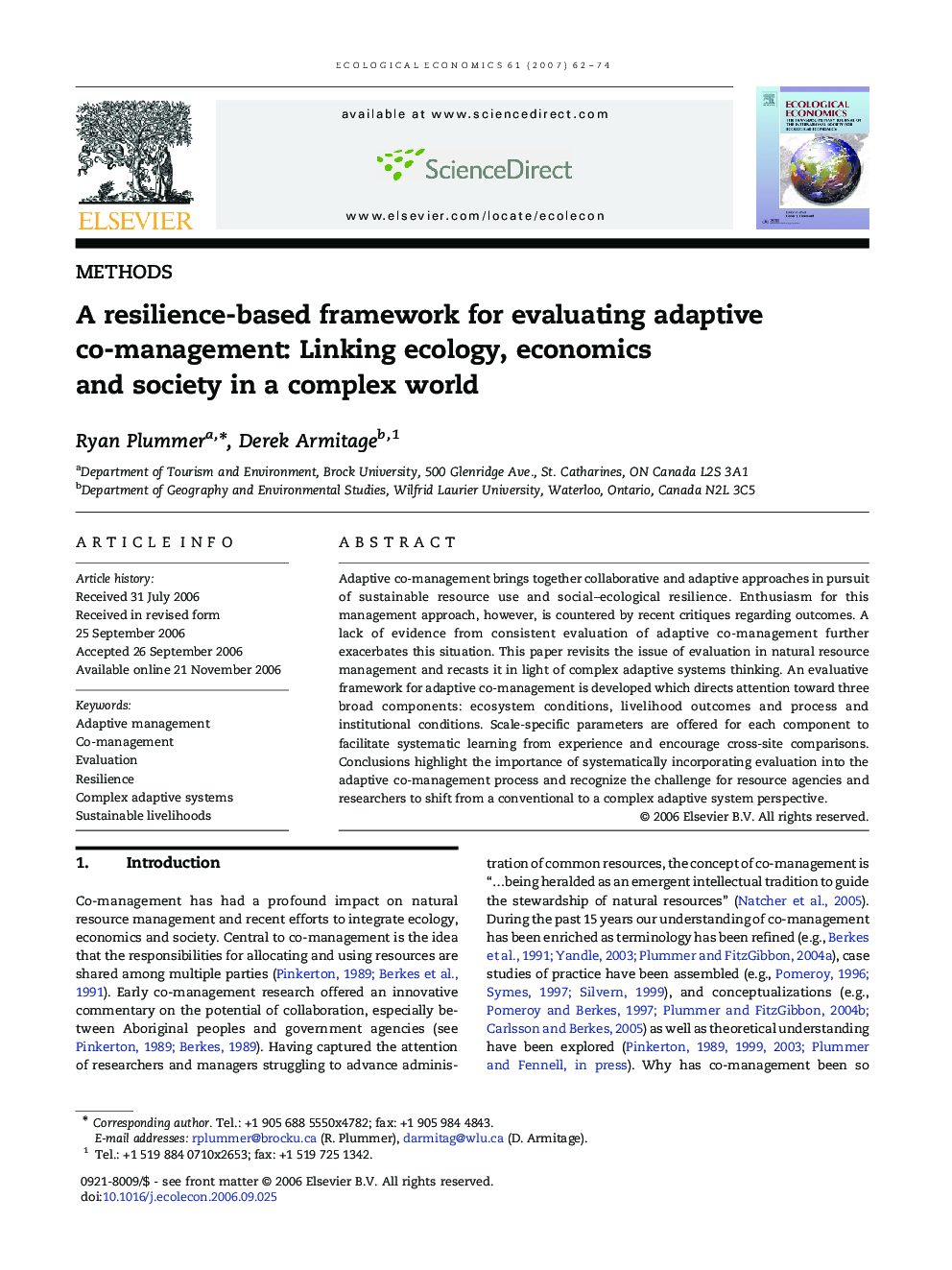| Article ID | Journal | Published Year | Pages | File Type |
|---|---|---|---|---|
| 5051838 | Ecological Economics | 2007 | 13 Pages |
Abstract
Adaptive co-management brings together collaborative and adaptive approaches in pursuit of sustainable resource use and social-ecological resilience. Enthusiasm for this management approach, however, is countered by recent critiques regarding outcomes. A lack of evidence from consistent evaluation of adaptive co-management further exacerbates this situation. This paper revisits the issue of evaluation in natural resource management and recasts it in light of complex adaptive systems thinking. An evaluative framework for adaptive co-management is developed which directs attention toward three broad components: ecosystem conditions, livelihood outcomes and process and institutional conditions. Scale-specific parameters are offered for each component to facilitate systematic learning from experience and encourage cross-site comparisons. Conclusions highlight the importance of systematically incorporating evaluation into the adaptive co-management process and recognize the challenge for resource agencies and researchers to shift from a conventional to a complex adaptive system perspective.
Keywords
Related Topics
Life Sciences
Agricultural and Biological Sciences
Ecology, Evolution, Behavior and Systematics
Authors
Ryan Plummer, Derek Armitage,
